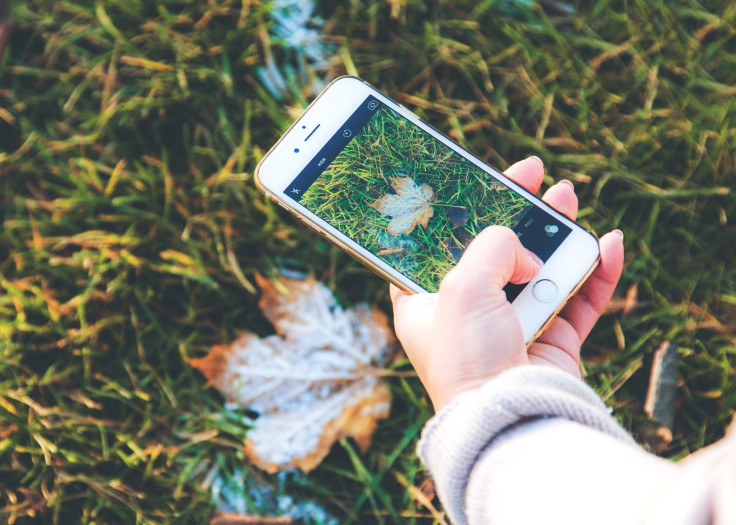Instagram, iPhone Photos May Actually Make You Happier, As Taking Them Involves Engaging With Environment

In recent years, we’ve mainly heard the negative side of social media on our mental and even physical health. Excessive use of Instagram, Twitter, and Facebook has been linked to addiction, and posting a lot of selfies on Instagram has been shown to be associated with less emotional support and intimacy in relationships. Teens who use social media have been shown to have a higher risk of body image issues and eating disorders, and also have a higher chance of developing depression.
But social media isn’t all bad, new research suggests. In fact, taking photos on our phones or Instagram and scrolling through them to remember good memories may actually be beneficial to our mental health, according to the new study published in the Journal of Personality and Social Psychology. In short, that annoying person who constantly snaps shots of her food before eating it may actually be enjoying her meal more than you.
The researchers of the study had heard all the claims about how phones act as a barrier between us and the real world, placing a digital wall between us and our experiences. They aimed to discover whether that was really the case, and whether it lessened or improved our happiness levels. Through a series of nine experiments, they concluded that using your phone to take photos or post them on Instagram actually did the opposite of what was previously believed: It helped people engage with their environments more, which made them happier.
“You hear that you shouldn’t take all these photos and interrupt the experience, and it’s bad for you, and we’re not living in the present moment,” Kristin Diehl, associate professor of marketing at the University of Southern California Marshall School of Business and an author of the study, told TIME. “What we find is you actually look at the world slightly differently, because you’re looking for things you want to capture, that you may want to hang onto. That gets people more engaged in the experience, and they tend to enjoy it more.”
In one experiment, the researchers studied 200 participants who rode a double-decker bus for a tour of Philadelphia. In one bus, the participants weren’t allowed to record or take pictures of anything, but the second bus allowed them to use digital cameras to take photos. People who were able to take photos actually ended up enjoying the experience more, and reported being more engaged because, “photo-taking directs greater visual attention to aspects of the experience one may want to photograph,” the researchers write.
In another experiment, the researchers measured participants’ visual focus when asked to take pictures (or not to) in a museum exhibit. Using eye-tracking glasses, the researchers found that people who were asked to take pictures ended up looking longer at things they wanted to photograph, and also reported enjoying the exhibits more than those who didn’t take pictures.
Perhaps it’s more about photography as an art form, allowing the viewer to have a creative conversation with the subjects, than it is about social media. But the reality is that digital technology allows us to use photography in nearly any situation, giving us the chance to capture the special details of life in the palm of our hand.
Published by Medicaldaily.com



























